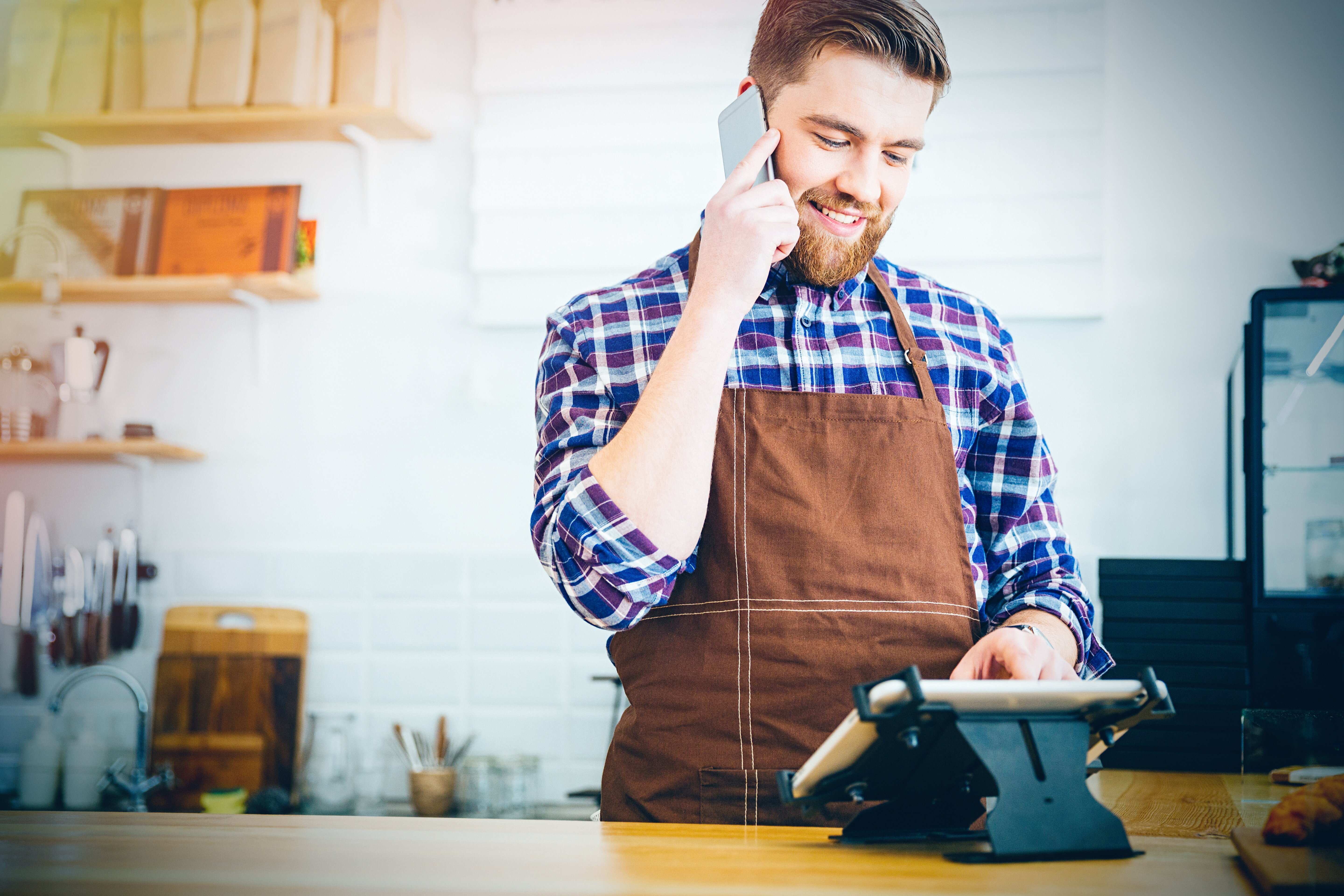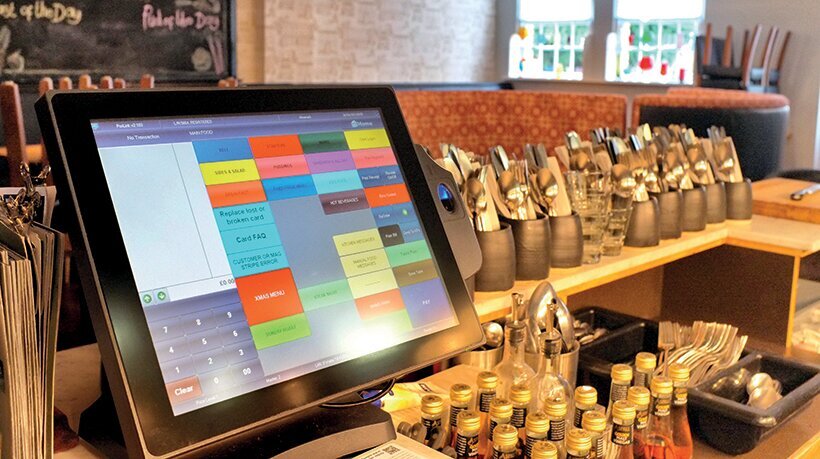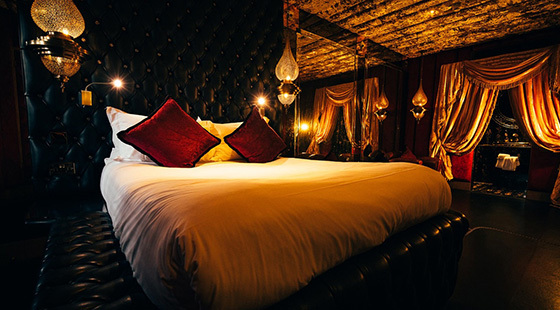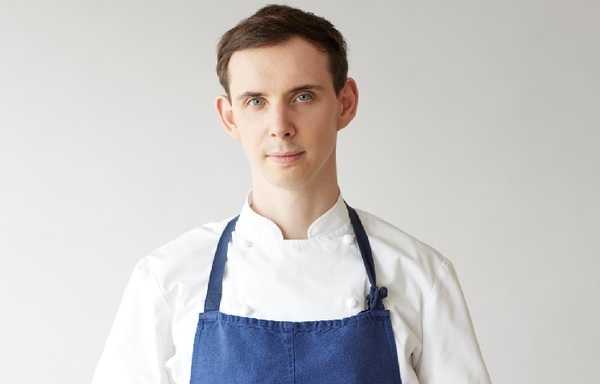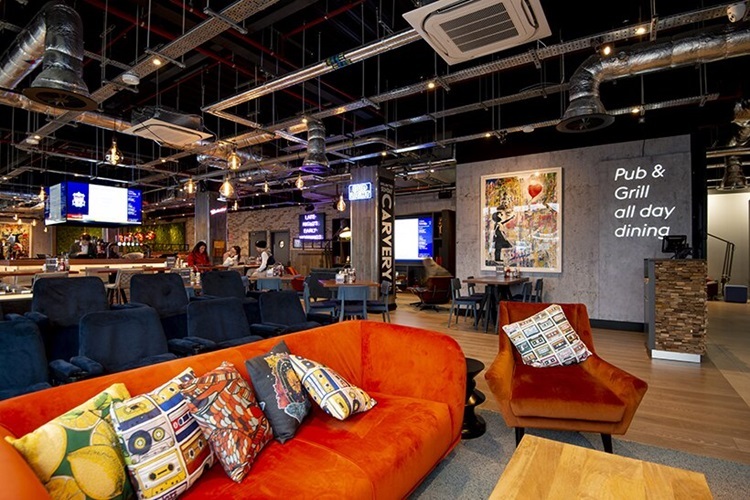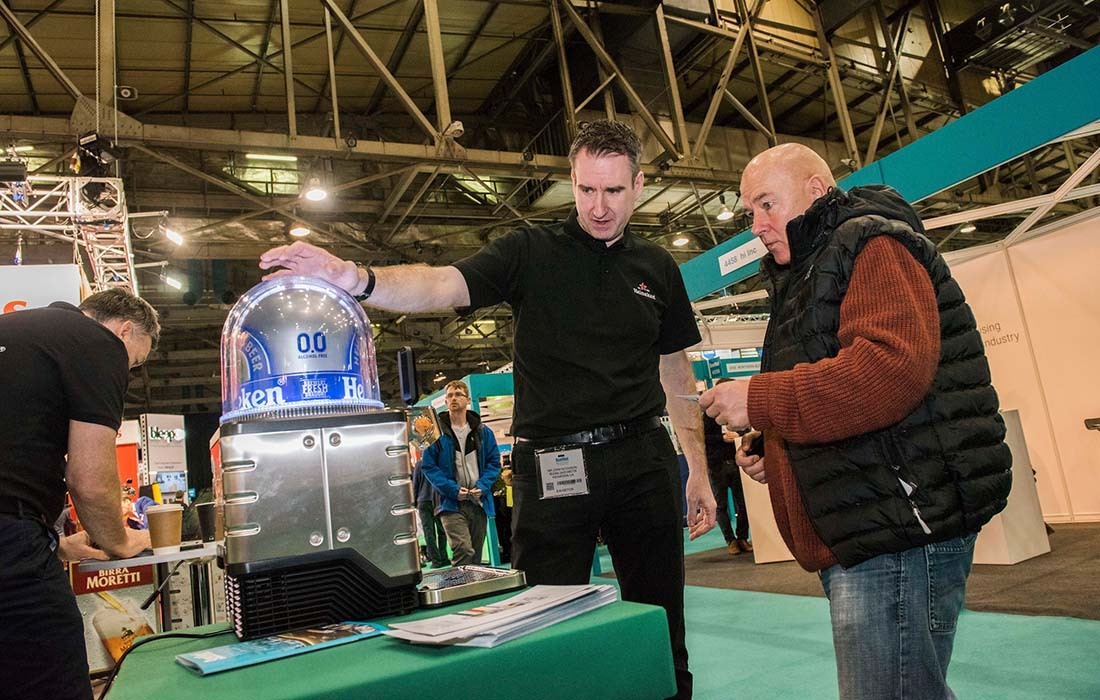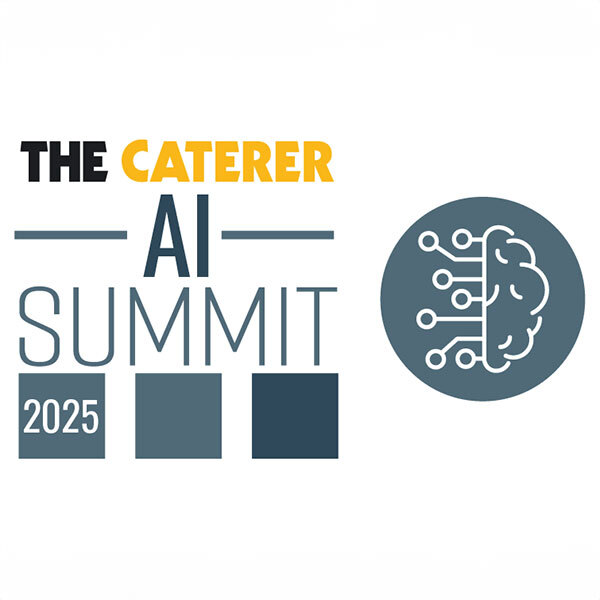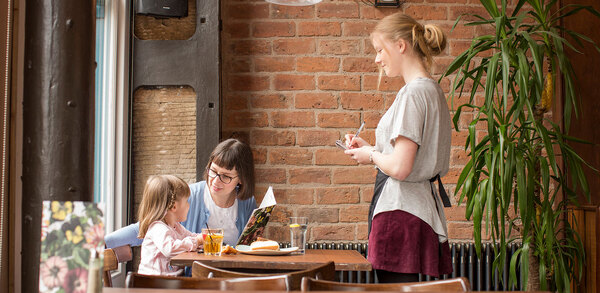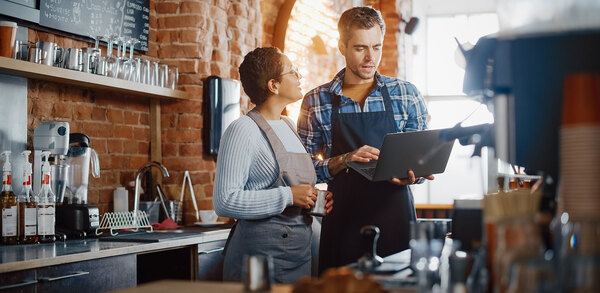Takeaway tech: The restaurants converting bookings into delivery solutions
Although most hospitality businesses are closed, some have introduced delivery and takeaway services in an effort to stay afloat and pay their staff. Elly Earls finds out how restaurant reservation systems have adapted to help
Although most restaurants and bars have been closed since 23 March, some remain open, albeit in a limited capacity, and have introduced delivery, click-and-collect and takeaway services where they have been able to do so safely. Not only has this helped generate some cashflow to keep their businesses afloat, it’s also protecting jobs during lockdown.
Online booking technology is playing an important role in helping businesses get their new operating models off the ground quickly and smoothly. In some cases, operators have found innovative ways of using the systems they already have in place, while in others, providers have quickly implemented new features, integrations and partnerships.
Gareth Smith is the owner of Michael’s Mount Merrion in Dublin. He realised immediately that the only way his business was going to survive was if he thought fast and came up with a new way of working. Initially, he started taking orders by phone and loading meals into the boots of customers’ cars, but as staff were taking credit card details over the phone, the phone lines were getting clogged up and people were getting frustrated.
He decided to turn to his reservation system provider ResDiary. What was originally a table reservation system has been tweaked into a system whereby customers can pre-order their meals and book their collection slots just like they would a restaurant table. Credit card details are taken through the system and encrypted by Stripe and, as Smith was one of the first operators to trial the system, there was no charge to set it up.
“We upload the week’s menu along with the prices and people can choose what they want, which also gives us a greater indication of what the ordering trends will be for that week,” Smith explains. “There’s no wastage and there are no surprises in the kitchen.”
It’s adding value for money and keeping everyone working; that’s the most important thing
During every 15-minute slot, three cars can pick up their order, so it’s slow and steady throughout the day. “No one is allowed in the premises whatsoever. We give them a quick call 15 minutes before to make sure they’ll be on time,” Smith says. “Because our food is of quite a high standard, it would be an awful shame if it was left hanging around.”
Staff ask for each car’s make and model so the process is as slick and seamless as possible. Then when the customer arrives, a team member drops the food out wearing gloves and a mask, spraying and wiping the boot handles behind them. “It seems to be the safest way we can do it; we’re firmly within the guidelines and it will save the company,” says Smith.
It hasn’t been completely smooth sailing, but any tweaks Smith has suggested to ResDiary have been implemented almost immediately. He’s also been making use of the system’s feedback feature to improve the new service as more customers use it.
“We wake up each morning to emails and if you keep hearing the same things, you act on it,” he says. A common complaint was that the chip portions could be a bit more generous. “That was an easy fix!” he laughs. “If we can improve customer satisfaction with an extra handful of chips, that’s nice and handy.”
Smith’s suppliers have also been relieved that at least one of its clients continues to operate. “The butcher I spoke to this morning has gone from 300 pubs and restaurants down to four,” he says. “They’re on their knees. They’re obviously not getting paid by the places that are closed down, so it’s in all our benefits to maintain cashflow.”
###Improvising to stay afloat
ResDiary isn’t the only booking system that’s tweaked their offering to help hospitality clients during this difficult time. Access Hospitality also recognised the need for operators to react quickly if they wanted to adapt their trading model to include an off-site option and responded with a new tech solution.
Partnering with Preoday and QikServe, it committed to setting customers up with a delivery or click-and-collect order process within 48 hours and funded the software for two months to provide cashflow support until the revenue stream was established.
With many regulars keen to support the restaurant sector while venues are shuttered, the company also boosted the opportunity for operators to sell vouchers on its sister site DesignMyNight, helping with cashflow.
HOSPA chief executive Jane Pendlebury thinks digital gift cards are a great way for businesses to keep their heads above water. “Guests are effectively making a booking for a yet-to-be-determined future date, with the understanding that it will be honoured once the restaurant is open again. By facilitating options like this – something particularly attractive for those restaurants that are traditionally hard to book, thanks to their popularity – it might serve to inject much-needed cash into a currently struggling business,” she says.
Meanwhile, some operators – like Callooh Callay bar in London’s Shoreditch – are improvising with the booking systems they already have.
“We had to come up with something very quickly to keep the business afloat and to pay our staff,” says head of sales and marketing Alexandra Perego. “We didn’t let anyone go at all, so we needed to think about what we could do to generate some cashflow.”
On the last day before lockdown, the team got together and came up with the idea for a ready-made cocktail delivery service. They bought 750ml bottles, corks and a machine that seals the bottle. Each bottle holds 10 cocktails – by standard measures – and it’s delivered with ice, coasters and garnishes.

On the back end, they decided to use the booking system they already had – Access Collins – to facilitate the new service. As Collins Pay had been disabled, Perego linked Access Collins with a business Paypal account, which means that the business gets the cash straightaway to pay the staff’s wages.
“I created another booking type called delivery service. I add the booking, email address, phone number and address. Then the customer is sent a payment link via Paypal and we use a tag on Collins to say payment sent and then payment received. Once the customer has paid they get a confirmation and I can print a run sheet for the manager to do the delivery,” she explains.
Delivery slots are 1pm-4pm and 7pm-10pm on Thursdays, Fridays and Saturdays and Perego has been pleasantly surprised at how quickly it’s taken off. “On a busy day, we’ll do anything between 20 and 35 deliveries,” she says.
Her next idea is to introduce a collaboration with a DJ. “There will be a Spotify playlist from a DJ that a customer will get once they’ve ordered their cocktail, so they can sit at home, drink the cocktail and listen to the music. It’s adding value for money and keeping everyone working; that’s the most important thing,” she says.
###Social distancing solutions
Third-party booking tools have also reacted quickly to the coronavirus pandemic. While Bookatable has waived monthly subscription fees, OpenTable has launched delivery options through partnerships with Deliveroo and UberEats.
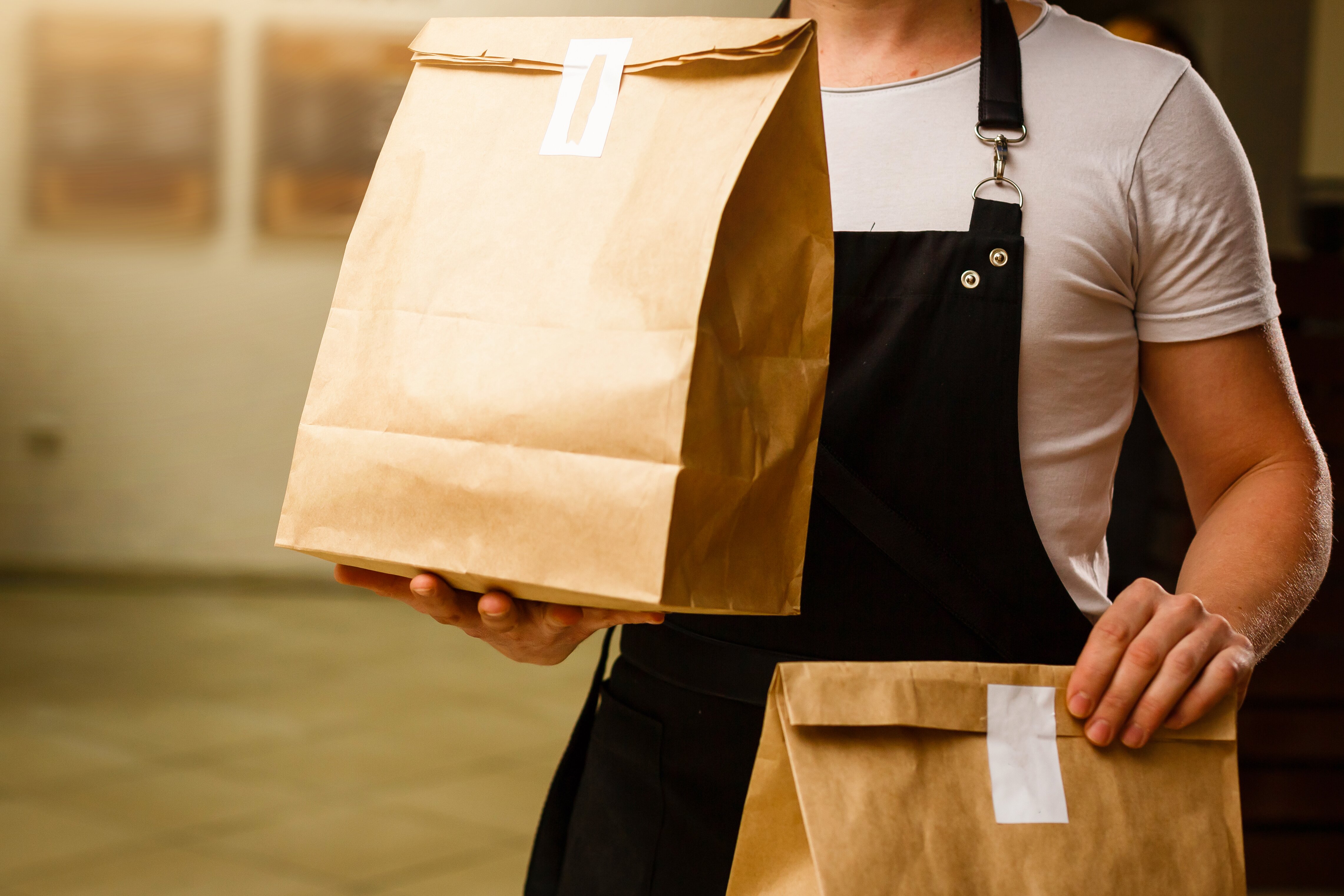
“These are available at hundreds of restaurants across the UK and will enable diners to select and order a restaurant-quality meal in just a few simple taps and have it delivered direct to their door. Giving diners the opportunity to continue supporting their favourite eateries, while bringing a much-needed additional revenue source to the restaurant,” explains Scott Hudson, director for EMEA at OpenTable.
Crave, which specialises in mobile ordering and payment solutions as well as video and messaging services, thinks it can play a key role in helping restaurateurs adapt to the new world and challenges of post lock-down service.
It has launched TakeawayToday, a low-cost order and pay platform to help restaurants with takeaway and delivery options. To help restaurants reopen again, it is adapting its technology to enable a social distancing solution between customers and staff, designed to maximise revenues from limited tables and keep staff and customers safe.
Paul Hayes, head of sales at Access Collins, agrees that having a flexible booking system will be more important than ever once people are able to start eating out again. “The only thing certain about life after the lockdown is that there will be a lot of uncertainty. People will be keen to get out, meet friends and family and enjoy a meal out together, so it’s likely that there will be a rush of reservations straight away,” he says.
People will be keen to get out, meet friends and family and enjoy a meal out together, so it’s likely that there will be a rush of reservations straight away
“A robust booking system will be needed to handle that demand effectively, especially if some restrictions such as social distancing remain. Venues may have to restrict the number of covers they can accommodate or reconfigure table layout, for example, and this can be managed more efficiently using technology rather than juggling the intricate needs manually.
“Some customers may still feel nervous about venturing out, though, and will require reassurance that their fears are being listened to. A clear booking system that caterers for individual needs, such as guaranteeing a more isolated table, if that is what has been requested, will enable people to book with confidence and build a lasting allegiance to your restaurant.”
In the meantime, Smith has been buoyed by the sense of camaraderie between different restaurants who are trying to adapt to the new normal. “Every day we’re calling each other, trying to gauge the pros and cons of everyone’s different approach,” he says. “I’m expecting the longer this goes on, the more businesses will come around to the fact that this is probably the only way their restaurants are going to survive, or at least not reopen with bad credit and lots of debt waiting for them.”
###Help for hotels
Hotel businesses are struggling just as much as their restaurant colleagues. One company that’s trying to help is Agilysys, which is hosting a series of webinars for its hotel and resort customers who are preparing for business to resume in the coming weeks, once their regional government and health authorities stipulate that it’s safe to do so.
“The series will discuss key things to consider for properties preparing for business as usual – from reviewing rates and ensuring they are updated and competitive, to assessing fiscal needs that operators typically would not need to take into consideration during otherwise standard business operations,” explains EMEA managing director James Slatter.
“Other factors include ensuring integration points are fully capable and up to date, as well as considerations that are vital to owners and operators, so they are prepared for what’s to come on the other side of this pandemic.”
Agilysys is also holding individual collaboration sessions as a courtesy to customers. The purpose is to help them better utilise their existing tools, which include rGuest Book for web reservations – a way for guests to provide information about their preferences during the booking process.
This system could be particularly relevant post-pandemic, as it enables guests to access their rooms in a virtually contactless manner, ideal for those who will continue to practice social distancing.
“In essence, this is a behaviour that many expect will become part of our ‘new normal’,” Slatter says. “The mobile software supports fewer staff interactions with functionality for remote check-in, and digital room keys complete with ID verification. Technologies that support a future focused on limited touch engagement provide assurances that guests and staff alike can reduce their potential health risks.”
Photo credit: Shutterstock



